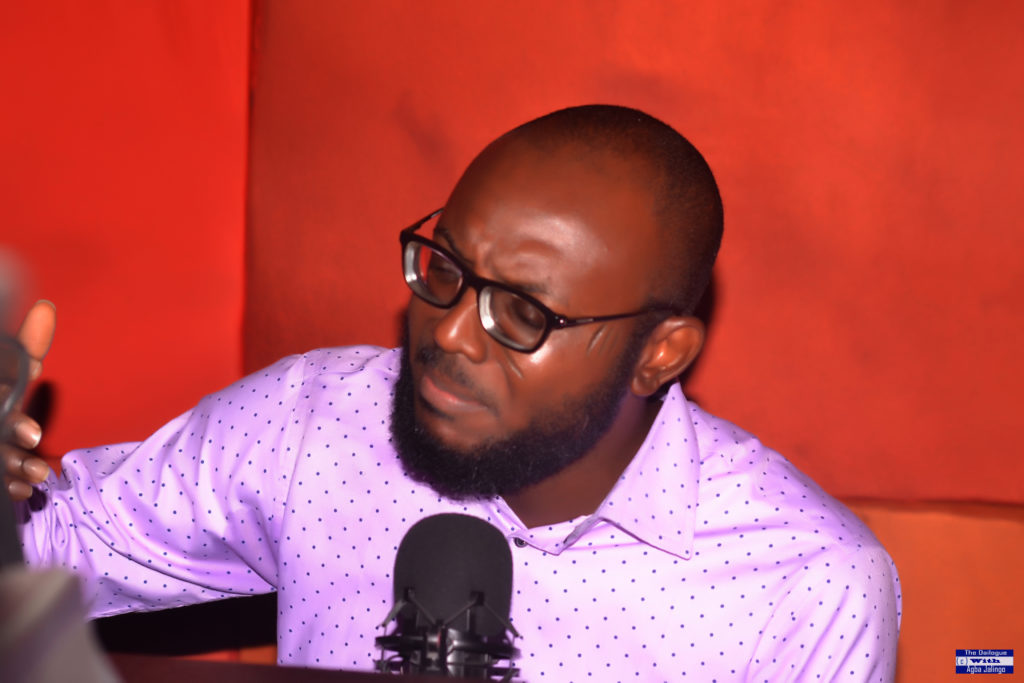
The death of Ntol Aruku Odey Aruku, the Ntol Atol of Nkim land, comprising Agboja (Ogboja), Ishiborr, Ndok, Adagom and Nkimkol, in November 2014 threw to the open a hot debate and unease that has been simmering for a long time now: where should the next king come from? Agboja or Ishiborr?
Today, Agboja has crowned a king to succeed the late Ntol Aruku Odey Aruku and Ishiborr has also held a king to be crowned sometime in November 2017 or so. Now one house has two kings. Is this house falling apart or this is a sign of great things to come? Before we answer these pertinent questions let us investigate the historical facts that fuel this debate and examine the rights of these two communities to produce the next king after the death of Ntol Aruku.
It is pertinent to note that Ishiborr and Agboja are traditionally and culturally affiliated. Both communities sprang from the same family unit. This fact is not disputable. Right from the inception of the Ntolship, there has been a mutual traditional arrangement and agreement that the Ntol dynasty should rotate between Ishiborr and Agboja.
This arrangement continued until sometime between 1901 and 1933 during the reign of Ntol Nkita Aruku of Ogboja when there was a protest against the Ishiborr community for having both a ruling house and a market.
You see in those days, the Nkim community had only one major marker situated in Ishiborr. The market is known as Ayantor and holds once every five days. This market is a center of commerce and festivity and a sort of catalyst for development and urbanization. So the reasoning behind the protest was that since such a mighty market is situated at Ishiborr, the Ntol dynasty should be solely left for Ogboja.
The acrimony this generated threatened the credibility of the stool and the unity of the two communities. A reconciliation conference was summoned in Nkimkol sometime in 1930 or earlier. The matter was settled amicably and a decision I will call the NKIMKOL ACCORD was reached.
The summary of the Accord reached was that Ogboja will always have two consecutive reign at the throne while Ishiborr will have one reign and the Ayantor weekly market. This settled it amicably and seemingly permanently until…
Before we proceed, a quick look at the list of kings who have ascended the Nkim throne will show us how the Nkimkol Accord played out. The throne was established sometime in 1830 and my research showed that the first Ntol was an Ishiborr man. See the full list:
- Ushik Ama of Ishiborr 1830-1849
- Aruku Monkpe of Ogboja 1849-1873
- Ama Ushik of Ishiborr 1873-1901
- Nkita Aruku of Ogboja 1901-1933 (The Nkimkol Accord was reached during his reign).
- Adom Akpogor of Ogboja 1933-1940
- Mgbeje Ama of Ishiborr 1940-1947
- Aruku Nkita of Ogboja 1947-1953
- Akpogor Adom of Ogboja 1953-1966
- Itashu Mgbeje of Ishiborr 1966-1971
- Aruku Odey Aruku 1971-2014
Now and here both Ogboja and Ishiborr have picked their independent Kings or Ntols.
From the foregoing list and based on the Nkimkol Accord of 1930 it should be the turn of Ogboja to mount the throne again. But it’s not that simple. There is another clause in that Accord and that’s where the Ishiborr community is holding on to say they have the right to crown their own chief now: the market clause.
The argument of the Ishiborr community is that Ogboja has flouted the Accord by having a market so they can no longer have two consecutive reigns at the throne before Ishiborr takes a shot at the throne.
But, does Ogboja have a market?
Long before the Nkimkol Accord of 1930 there was a market in Abakpa town of Ogboja know as AREH IRIRE. The market started in 1914, the same time Abakpa town was born. In 1902, one Mr. Thomas Welsh was the first European to set foot in Nkim land which later became the center of what is Ogoja today.
On the 13th day of March, 1908 one Mr. Hives was appointed the first Colonial Administrator for Ogoja. Almost immediately, a settlement sprang up opposite the present Ogoja Local Government Secretariat, where the post office is today. This settlement was known as the African Quarters. It was a sort of hostel or camp for African staff of Colonial Administrators. The place became a beehive of activities with a night life of drinking, prostitution and the like.
The African Quarters was close to the offices and residential quarters of the European Colonial Masters; and when the constant noise emanating from the African Quarters became unbearable for the colonialists, they shut down the quarters in 1914. This shutting down created new settlements among which was Abakpa. Most of the local staff of the European colonialists moved to where Abakpa is today and a little market was born there too.
The Ogboja and Ishiborr communities saw this market in Abakpa, Ogboja as insignificant and a pure creation of “foreign elements”. That’s why it was never brought to the table during the Nkimkol conference. That’s why the Ogboja people keep saying they don’t have a market, even though the said market has grown over the years and even moved to a new site. To Ogboja, the only known market is the Ishiborr market, cognizable under the Nkimkol Accord. They see any claim by Ishiborr that they now have a market as a stratagem to flout the Nkimkol Accord and ascend the throne before their time.
Can this argument stand the 21st century reality? AREH IRERI is no longer the small insignificant market that existed in the 1930’s when the Nkimkol Accord was reached. In fact that market as it is ceased to exist in 1948 when Abakpa was burnt down by a massive harmattan fire. So the Abakpa market today is not the market that was ignored by the framers of the Nkimkol Accord of 1930. It is the market built after the Great Fire of 1948; a market built when the Nkimkol Accord was already in force.
In another remove, a massive market has been built by the government at Ndok Junction. And Ndok is Ogboja, just like Adagom is Ishiborr. In the olden days, Ndok and Adagom started as security outposts of Ogboja and Ishiborr respectively. These outposts served as some sort of barracks where men of valor are selected to stay and wade off attacks for their main villages. So it can be argued that if a market is situated at Ndok, then a market is in Ogboja. However, the operation of the market should not be overlooked; for a market is not just massive buildings where no buying and selling is happening.
Having analyzed the Nkimkol Accord, the argument of both sides and other historical issues I want to make some salient submissions. The inability of the elders of the two communities to come to an amicable and acceptable settlement like the elders of the 1930’s though disappointing should not be allowed to affect the brotherhood of the two communities.
The review of the Nkimkol Accord is long overdue. Since the amicable review of the said Accord has failed, how we see things now will affect what tomorrow brings. Two kings in one house should be seen as a sign of growth. It is a sign that the house has expanded and prospered. The dynamics that informed the Nkimkol Accord have changed. 1930 is different from 2017. I believe that the elders of 1930 will reach a different decision today if they gather for another conference in Nkimkol.
Agboja abo ne Ishiborr, agbayin ba. Be there for each other and prosper… Together.
First Baba Isa is a Legal Practitioner and writes from Abuja.
Short Link:





